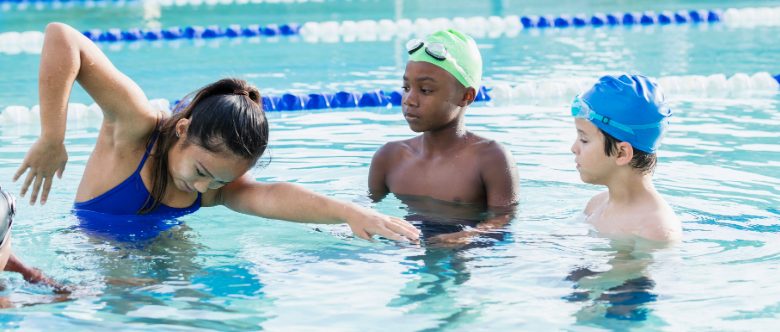Why Don’t All Children Learn to Swim?

Learning to swim is associated with an almost 90% reduction in the risk of drowning in young children. However, as the authors of a research brief entitled, “Barriers to Swimming Lessons for Children,” which is being early released this week in Pediatrics, note, there are important racial and economic disparities in learning to swim (10.1542/peds.2024-068122).
Michelle L. Macy, MD, and colleagues from Lurie Children’s Hospital, Children’s National Hospital, Rowan University, and Children’s Hospital of Wisconsin analyzed data from a 2022 survey of Chicago parents, in which parents were asked if any of their 3- to 17-year-old children had taken swimming lessons in the past year. If they responded no, they were asked about the reason(s). Parents were also asked about their youngest child’s comfort with specific swimming survival skills:
- Floating on back for >30 seconds without help
- Treading water for >1 minute
- Swimming the length of a pool without help
- Swimming with face in the water
- Swimming in water when they cannot touch the bottom
Data for 1042 families were analyzed. More than 80% of Black and Hispanic/Latine parents said that their children had no prior-year swimming lessons, compared with 64% of white parents and 49% of parents of other or multiple races.
While cost was a barrier reported across all racial and ethnic groups, other reasons for no prior-year swimming lessons differed by race and ethnicity:
- The most common reason for white parents (42%) was that “my child already knew how to swim.” Fewer than 20% of Black parents and Hispanic/Latine parents gave this as a reason.
- Access was the most commonly cited reason for Black and Hispanic/Latine parents. Twenty percent of Black parents reported that “Our Park District pool was not open,” and 29.5% of Hispanic/Latine parents reported that “I could not find a place to go.”
- Seventeen percent of Black parents also reported that “I’m not comfortable swimming myself,” compared to <10% of parents of other races and ethnicities.
There were also racial and ethnic differences in floating, swimming the length of a pool, and swimming with face in the water. Black parents were less likely to report that their youngest child was comfortable with all 3 of these skills; Hispanic/Latine parents were less likely to report that their youngest child was comfortable with floating and swimming with their face in the water.
As pediatricians, we can work within our communities to improve access to swimming lessons for all children to reduce the risk of accidental drownings.